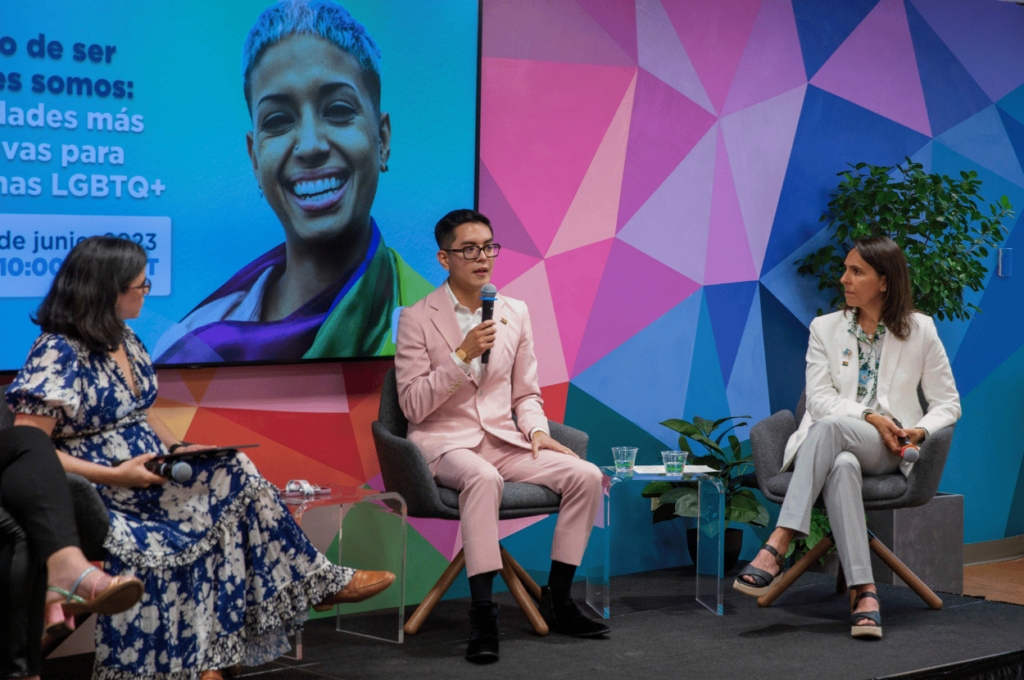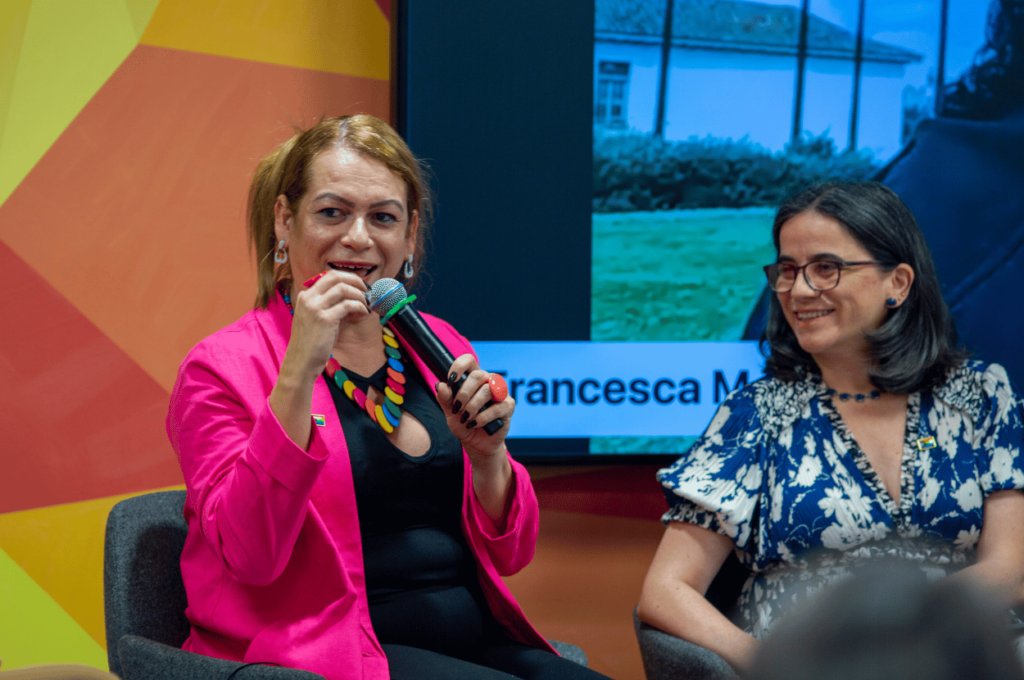The IDB’s LGBTQ+ Pride Month event, “Pride in Being Who We Are: More Inclusive Societies for LGBTQ+ People,” was an opportunity to open valuable and necessary conversations about LGBTQ+ inclusion. In the first panel, “Identifying and Removing Barriers,” public sector authorities from Brazil, Colombia and Ecuador joined two specialists from the IDB group to address the challenges and barriers to accessing services and exercising full citizen rights for LGBTQ+ people. During the conversation, they also discussed the potential of some solutions that are already being implemented in the region.
Want to know what we learned about the inclusion of diverse sexual orientations and gender identities? Check out this recap of the conversation:
Public and Private Sectors must unite for LGBTQ+ Inclusion in Latin America
The creation of institutions specifically focused on the LGBTQ+ population is recent but of great relevance. Alexander Guano Monteros, Undersecretary of Diversities at the Ministry of Women and Human Rights of Ecuador, stated:
“Without a doubt, the institutionalization of a specific administrative unit that articulates organized work regarding the needs of the LGBTQ+ population is essential.”

Still, the challenges faced within public institutions are not small. The Undersecretary explained that it has been “a challenge to provide an articulated and institutionalized response from the State to the historical needs of the LGBTQ+ population.”
Another important agent of change is the private sector. Laura Giraldo, Gender, Diversity, and Inclusion Officer at BID Invest, added this important perspective: “There is a message that we are trying to express and emphasize to our clients in the private sector: the LGBTQ+ population has enormous potential, and it must be considered from both an employer and consumer perspective.”
We need more substantial advancement in the access to basic services for the LGBTQ+ population
One of the key points discussed at the event was the gap that exists in access to services such as healthcare and education for LGBTQ+ individuals.
“In the healthcare sector, there is a deficiency related to the baseline in terms of recognizing and characterizing individuals with diverse sexual orientations and gender identities,” explained Francesca Mcqoid, Sexual Diversity and LGBTIQ+ Rights Manager at the Vice Presidency of Colombia. “One of the challenges for all of Latin America and the Caribbean is to establish a baseline and characterization with standardized variables that allow us to recognize the needs of individuals with diverse sexual orientations and gender identities,” she stated.
Carina Lupica, Senior Specialist in the Gender and Diversity Division at the IDB, pointed out how the institution takes into account the need to include the LGBTQ+ population in its initiatives. “The Bank has set a goal that between 2022 and 2025 – at least 10% of new operations must explicitly support the inclusion of LGBTQ+ individuals,” she said in her intervention.
Regarding the removal of barriers to education access for LGBTQ+ individuals, a recent publication by the IDB documented the evidence of stigma and discrimination based on sexual orientation and gender identity in educational institutions in the region and the adverse effects they have on the mental and physical health of this population. This policy note also highlights promising practices that have yielded positive results in preventing and mitigating cases of harassment and bullying.
Data collection is the first obstacle to developing public policies that benefit LGBTQ+ individuals
As we have mentioned in previous blog posts, having quality data on the LGBTQ+ population is essential for developing public policies that bring about effective social transformations.

Symmy Larrat Brito de Carvalho, National Secretary for the Promotion and Defense of the Rights of LGBTQIA+ People in Brazil, stated that “data production is an immense challenge.” The secretary explained that “the main commitment of this newly created Secretariat is the investment and prioritization of this data.”
This includes, for example, their incorporation into official country statistics, such as censuses and national surveys. It is also important to record the social and economic gaps that affect LGBTQ+ individuals and their access to basic services.
Alexander Guano Monteros highlighted the progress made in Ecuador, stating, “We have managed to obtain data through three statistical processes and have successfully included the variable of gender identity and sexual orientation in the national census.”
Carina Lupica also emphasized the advances made by the IDB through the GDLab, the Gender and Diversity Knowledge Initiative: “We have developed seven studies focused on this population on various topics.” She added, “Something wonderful that happened is that three of these studies have been incorporated into LACEA, which is the Latin American and Caribbean Economic Association. It is a very select group of people from the academic and economic sectors who, for the first time in the history of this association, have included these topics.”
Progress is not enough, but gives us hope
A message that the event left us with is that, while the future is challenging, the achievements that have been made are also hopeful for advancing LGBTQ+ inclusion and, at the same time, driving the economic and social development of countries in the region. “As a trans person, it feels very special to me to have this place in politics and to have received this special invitation from the IDB,” said Symmy Larrat.
Laura Giraldo added, “I see the progress we have made with positivity and inspiration. Little by little, we are starting to break down prejudices and barriers.”
On her part, Carina Lupica encouraged the attendees to continue working for inclusion. “Even if we believe we are doing small things, we are making an impact. It is an immense joy and represents the Bank’s commitment to the LGBTQ+ population,” she affirmed.


Leave a Reply